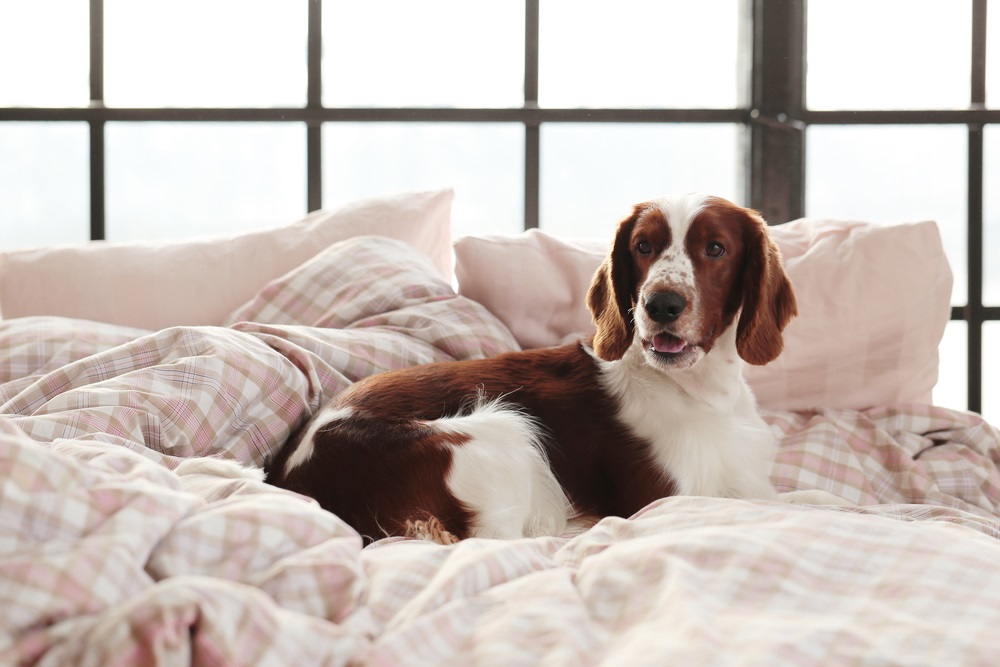Guest blog by Jeffery Roberts
Moving into a new home can be both an exciting and a stressful time. You may not realize it, but your dog will probably pick up on that energy weeks before a big move. This can cause even more stress for your furry friend. Insecure dogs may start to behave poorly, or have accidents in the house. This behavior can carry over into your new home. It’s best to get a head start on preparing your pet for his new home so that the transition is easier on everyone.
The good news is, that with some forethought and careful planning, you can manage the disruption your dog experiences and set him up to be happy in a new place.
Creating a dog-friendly new home
Hopefully you kept your furry friend in mind when selecting your new home, so you already know that you have a yard or local dog park for him to play in. If your new home has a yard, install a fence or dog run prior to your move-in date. You should also check to see if neighbors have dogs that your pet will need to get used to.
If you are planning to move far from your original home, identify the closest vet and make an introduction prior to moving. Schedule an initial check up shortly after you arrive so that your dog’s records will be at the new vet’s office prior to any emergency visits. You never know what might happen, so it’s best to be prepared!
Minimize packing stress
As you start to move furniture and put your belongings into boxes, keep an eye on your dog. These changes to his home environment, in combination with the sense that something big is coming, may create anxiety in some dogs. To minimize stress, plan to leave the spaces your dog most commonly spends his time intact for as long as possible. If your dog is crate-trained, do not move his crate from its usual spot until moving day.
While you undoubtedly have a lot on your plate prior to the big move, sticking to your regular routine, insofar as your dog is concerned, is also an important factor in minimizing stress. Maintain your regular feeding and walking schedule as best you can. If time permits, some dogs may find an extra walk to be especially beneficial.
Plan out dog friendly spaces
Prior to moving into your new home, choose the room where your dog will spend most of his time. This may be the space where you keep his crate, or where you keep his food and water dish. Plan to make this room available to him as soon as you arrive into your new home. You will have the best results if this room can be closed off from the rest of the house as you move the rest of your stuff in.
If spaces in your new home will be off-limits to your dog, such as your bedroom, enforce these rules from the beginning. Dogs like to please their “parents” and their anxiety is reduced when they know what is expected from them. Making it clear where is and is not allowed to be from the onset will help him to master his new environment.
Be patient
While you know the reasons behind moving into the new space, your dog does not. Your dog will likely feel uncertain about the new space and consider the old house to still be his home, until he gets settled in. During this time, some dogs experience anxiety that may lead to chewing, going to the bathroom in the house, and occasionally to aggressive behavior. Be patient with your pet and take time to minimize the damage he can cause by limiting contact with strangers and children, keeping him on a leash, or not leaving him alone in any room.
Get new dog tags
Your new neighbors will take time to get to know your dog and recognize him. This coupled with the fact that your dog may go looking for his old home, makes it especially important that you update his dog tags with your new address and contact information. Again, it’s better to be safe than sorry!
Conclusion
With careful planning and attention to details, you can help your pet transition into his new home with minimal stress. Be mindful of your pet’s behavior and be patient if you observe anxiety or bad habits resurface. By maintaining your routine with your pet as long as possible in your old home, and being consistent about your expectations and his safe spaces in your new home, your dog will be sure to adjust in no time at all!
Jeffery Roberts is a pet enthusiast and volunteer at his local pet shelter. His passion for animals started at an early age and through his work on becoming a veterinary student he understands and cares for pets of all species. Jeffery currently writes for The Happy Pooch and has 2 cats, a bird and a dog named Lucy.



